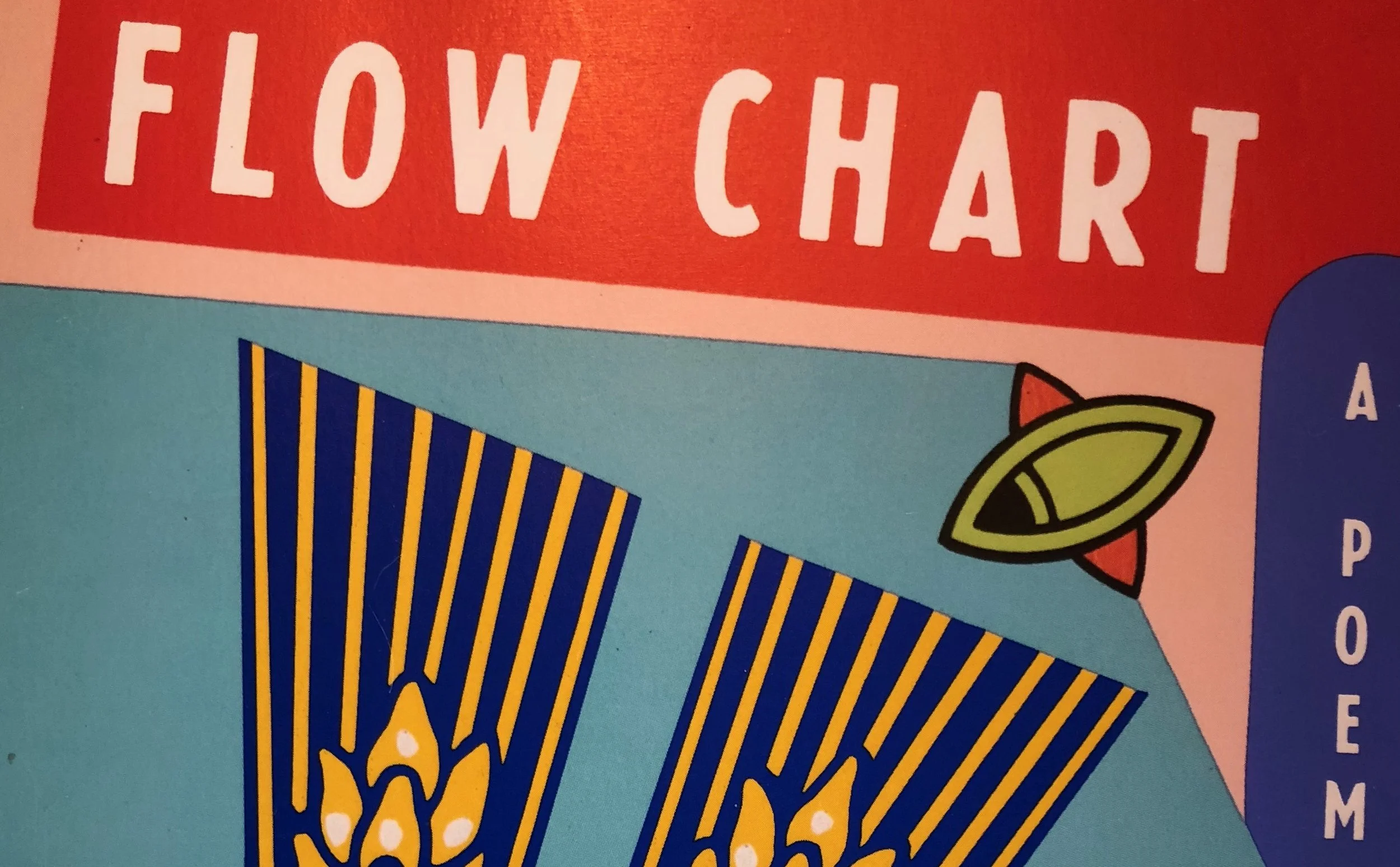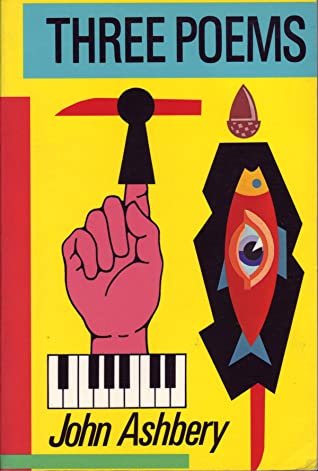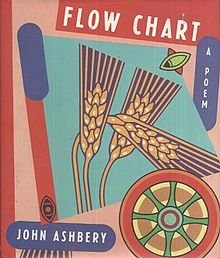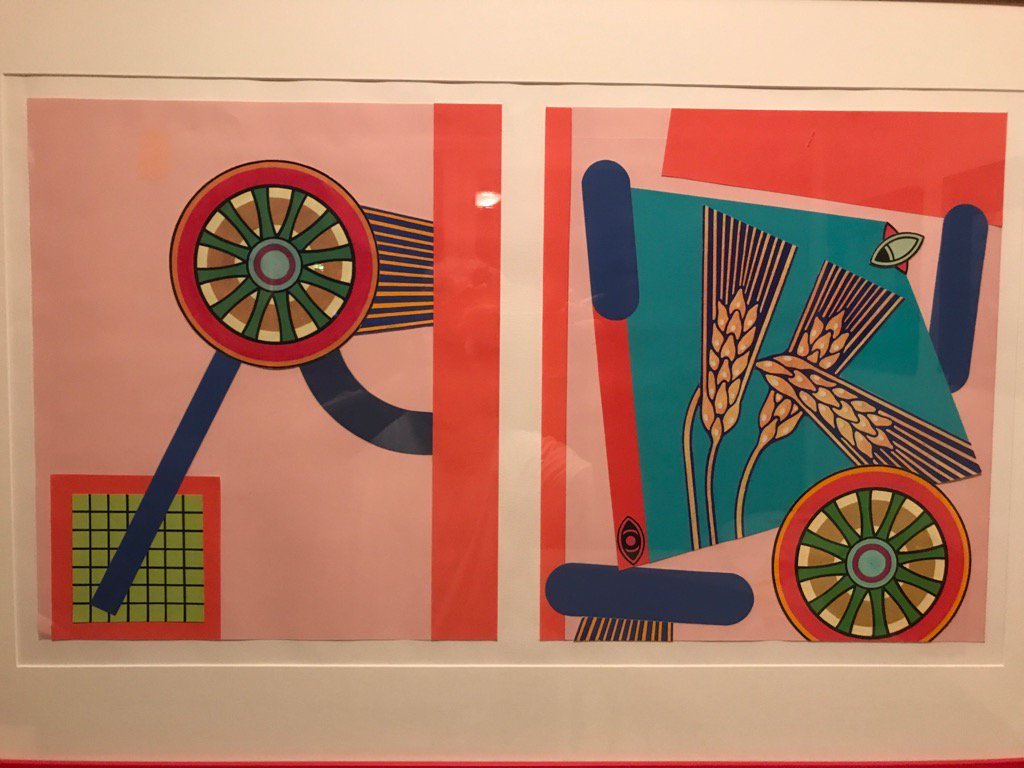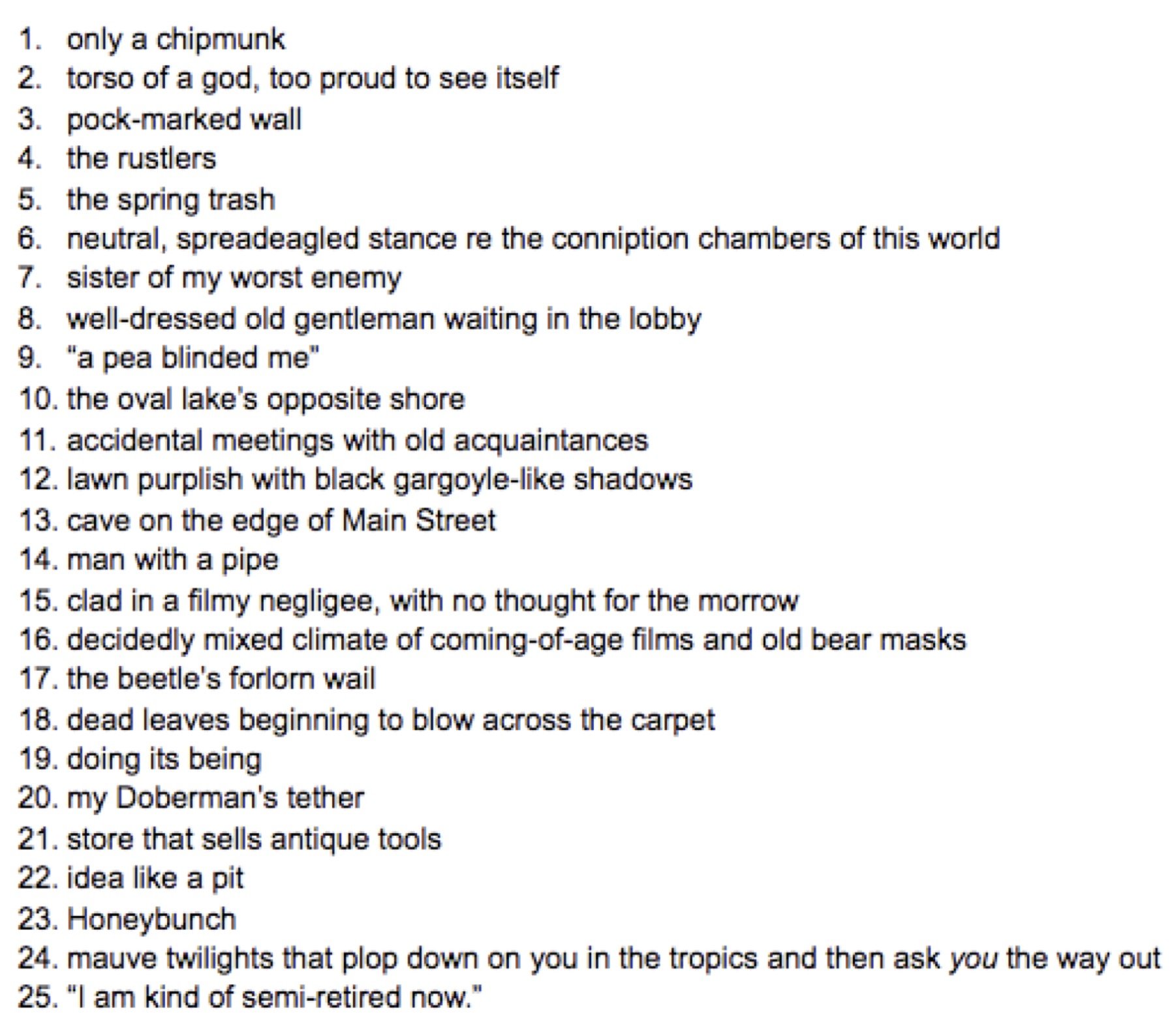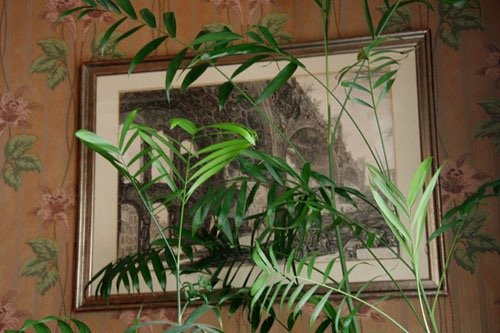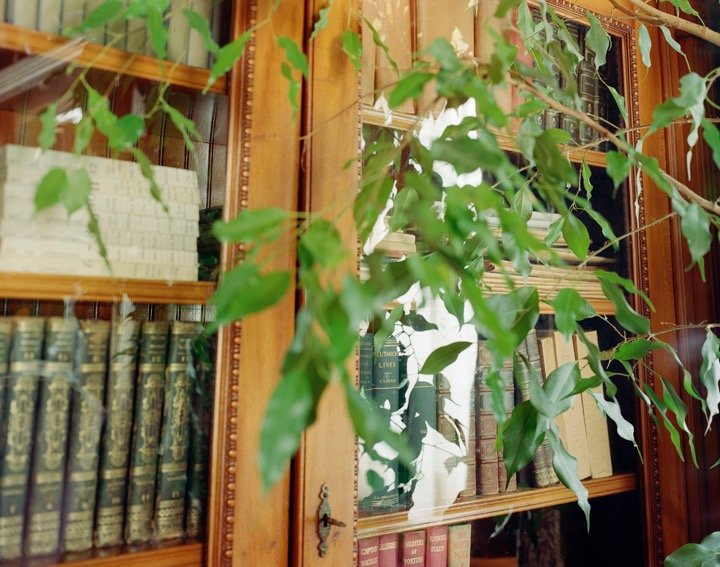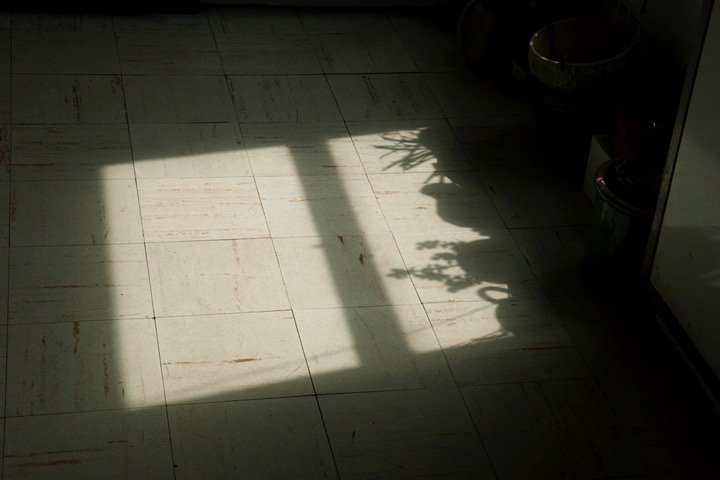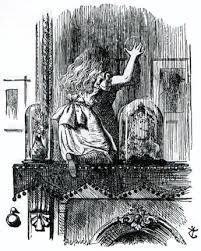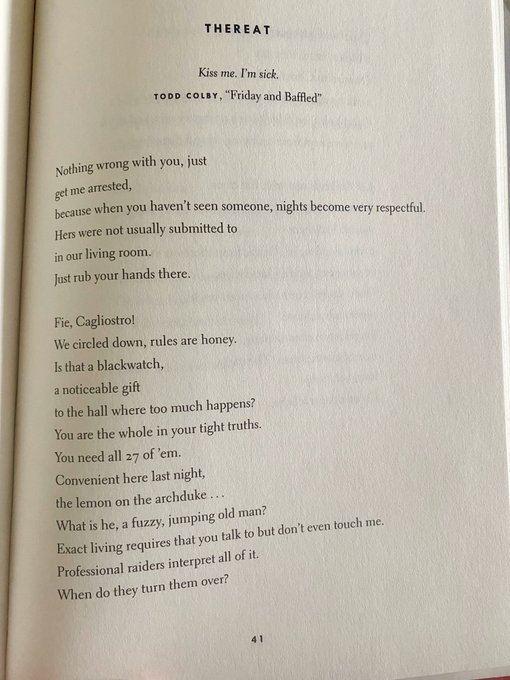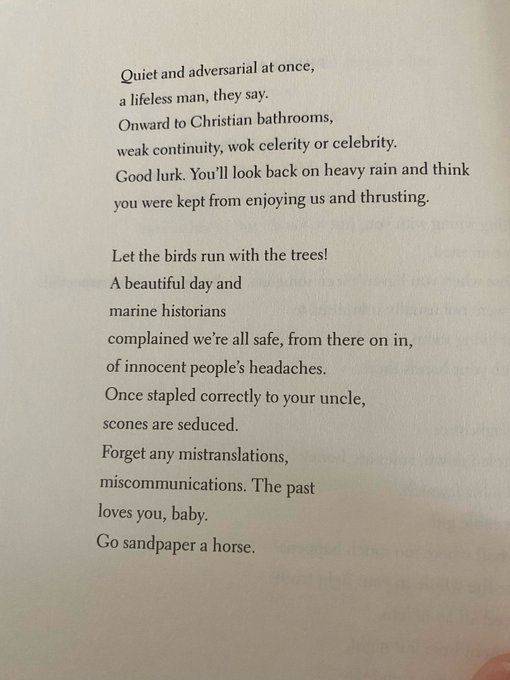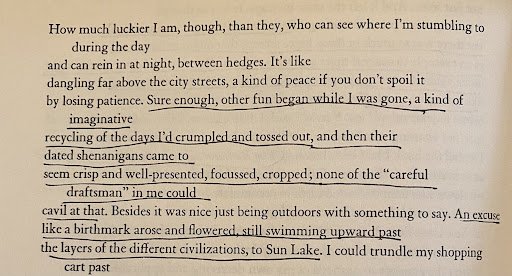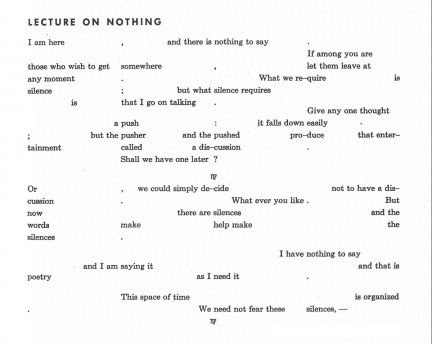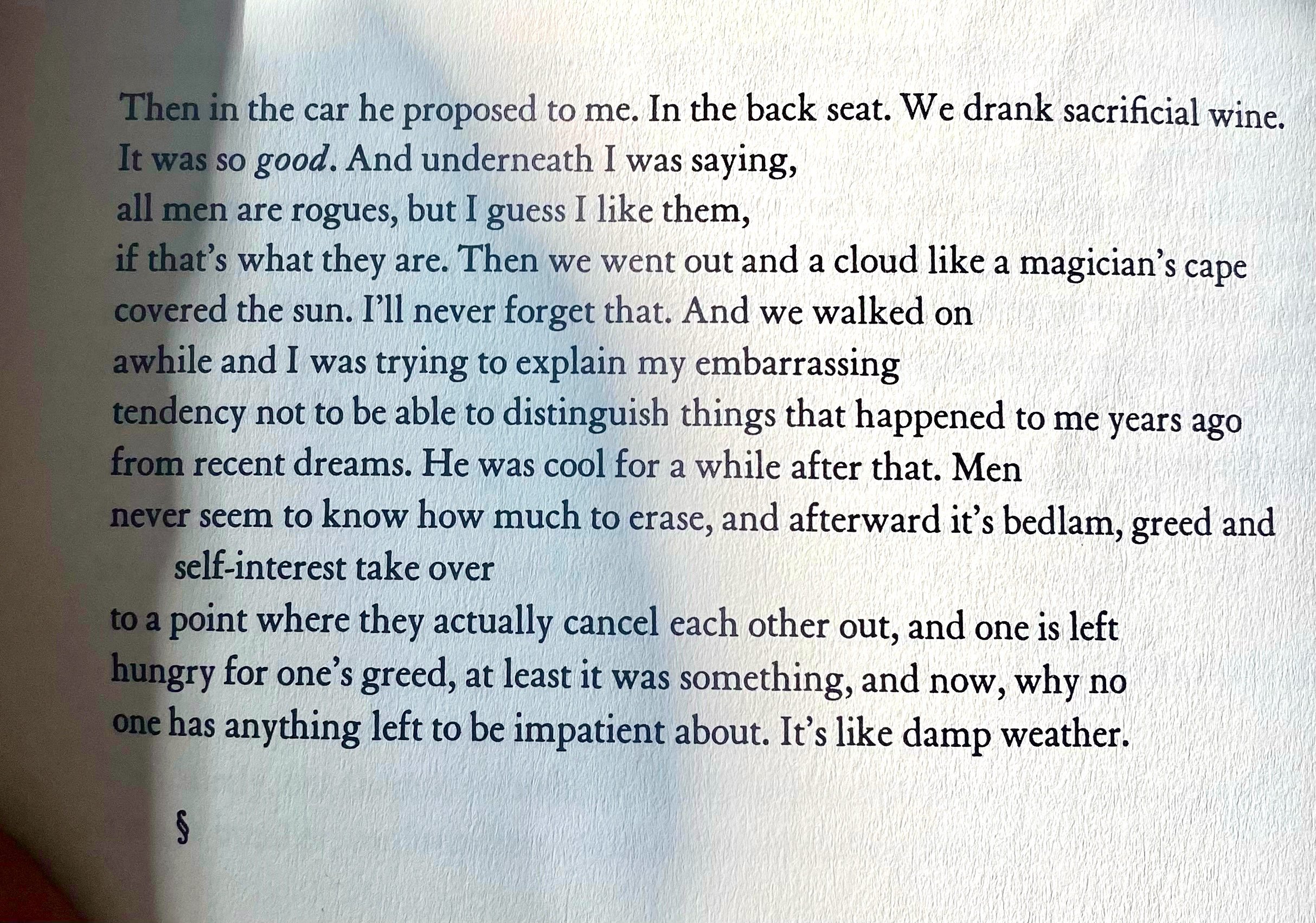Through #CollectiveAshbery, we join together and take our time with group readings of books by John Ashbery. The reading of each book takes place over Twitter, led by a knowledgable guide, and concludes with a public virtual event. The series launches with a complete reading of our namesake Ashbery title, Flow Chart.
A Group Reading-Through / Thinking-Through of THREE POEMS
Starting December 1, 2022, led by Daniel Kane
John Ashbery’s Three Poems, a work that Harold Bloom wrote that, “in resonance and spirit’s strength, can stand near Rilke as a visionary achievement.” We're offering an unprecedented opportunity to read it—slowly, deliberately—along with many others. There's nothing to sign up for to take part. Simply read along and comment along as you like.
Join Us!
Join us in a group reading-through, thinking-through of John Ashbery’s book-length Three Poems. We will read the entire book as a group over 13 days, from December 1st through December 13th. We'll be inviting you later to join us for a concluding live, free virtual event on Friday, December 16th at 1pm EST. Scholar Daniel Kane will lead our online discussion, which will take place over Twitter and Instagram.
How it Works—Read Along
There is no need to register to take part in Collective Ashbery. All you need is any copy of the book (either the freestanding publication or the complete text to be found in the Library of America’s first volume of collected Ashbery poetry). The reading schedule is below. Daniel Kane will help guide us through our reading on Twitter (through @flowchartfdn) and Instagram (@flowchartfoundation) every day. Use #CollectiveAshbery to follow along. We’ll also post all of the comments from Daniel on the website in digest form every few days. You can actively join the conversation by posting with the same #CollectiveAshbery hashtag on Twitter or Instagram as you like, or simply follow the conversation.
To celebrate the conclusion of our group read, we invite you to join us on Friday, December 16th at 1pm (EST) for a live Zoom event (details coming soon).
Daniel Kane is professor of American literature at Uppsala University in Sweden. His publications include the monographs All Poets Welcome: The Lower East Side Poetry Scene in the 1960s (2003), We Saw the Light: Conversations Between the New American Cinema and Poetry (2009) and Do You Have a Band?: Poetry and Punk Rock in New York City (2017). He is currently at work editing Love, Joe: The Selected Letters of Joe Brainard.
Watch the Concluding Discussion
Reading Schedule
NB: First page numbers correspond to the freestanding book (Echo Press or Penguin Poets editions); the second set correspond to the poem in Library of America’s John Ashbery: Collected Poems 1991-2000
1. THE NEW SPIRIT
December 1: pp. 1 - 12 / pp. 247 - 253 From “The New Spirit” (opening) through “…progress to be born.”
December 2: pp. 12 - 22 / pp. 253 - 259 From “You know that emptiness…” through “or any of the individual instants of light darker.”
December 3: pp. 22 - 31 / pp. 259 - 266 From “…As in a novel the unmistakeable truth…” through “…but baffling commonplace events.”
December 4: pp. 32 - 41 / pp. 266 - 272 From “What was it we said to each other?” through “…imagine everything that existed elsewhere.”
December 5: pp. 41 - 51 / pp. 272 - 280 From “We were ideally happy…” through “…to be proposed but never formulated.”
2. THE SYSTEM
December 6: pp. 53 - 62 / pp. 280 - 287 From “The System” (opening) through “…into a future without controls.”
December 7: pp. 62 - 71 / pp. 287 - 293 From “It seemed, just for a moment…” through “…it can only result in destruction and even death.”
December 8: pp. 71 - 80 / pp. 293 - 300 From “In addition to these twin notions of growth…” through “…no reason to exist if this were not the case.”
December 9: pp. 80 - 89 / pp. 300 - 306 From “So I think that the question of how…” through “…hoping for more and better things to come.”
December 10: pp. 90 - 99 / pp. 306 - 313 From “That’s the way it goes.” through “…will have become rightfully yours again.”
December 11: pp. 99 - 106 / pp. 313 - 317 From “I know now that I am no longer waiting…” through “…leads to the pragmatic and kinetic future.”
3. THE RECITAL
December 12: pp. 107 - 112 / pp. 318 - 321 From “The Recital” (opening) through “…the Day of Judgment and afterward if possible.”
December 13: pp. 112 - end / pp. 321 - 326 From “We are trying with mortal hand…” through “…the last spectator had gone home to sleep.” (end)
Daniel’s Daily Postings Digest
December 1
Have too many critics and readers gone gaga over Ashbery wondering if “leaving out” might be the “truer, way” while skipping over the fact that he almost immediately qualifies himself by suggesting that, in the empty spaces, “something soon comes to stand in their place?”
Discuss “And next the thought came to me that to leave all out would be another, and truer, way” (Three Poems, 1975) alongside “This leaving-out business. On it hinges the very importance of what's novel / Or autocratic, or dense or silly" (“The Skaters,” 1966)
I am often sad when I read “Three Poems,” partly because I understand it as a melancholy acknowledgement of the impossibility of being large and containing multitudes: “…it is your last chance, this time, the last chance to escape the ball // of contradictions.”
Is Ashbery harking back to Ted Berrigan’s Sonnet 1 (“upon his structured tomb”) in the line “we have broken through into the meaning of the tomb.” Could it be true, might it matter, and if so, why? How much longer shall I be able to inhabit the divine?
A photo of John Ashbery and Ted Berrigan in 1971
6. When Ashbery’s prose breaks fully into poetry – “Because life is short.” What's occasioned this shift? How do we respond to the bathos of it? It breaks me (sad, but in a good way).
7. Drew Milne: “Part of the initial interest and excitement of Three Poems is that it offers poems that appear to be prose. The texture breaks up here and there, but the dominance of prose is such that the book as a whole could almost be mistaken for a novel..." Can it?
8. “To escape in either direction is impossible outside the frost of a dream” (Ashbery). "Two roads diverged in a yellow wood,/And sorry I could not travel both/And be one traveler, long I stood /And looked down one as far as I could /To where it bent in the undergrowth" (Frost)
December 2
I love the mix of gentle resignation and mild terror in “But we must learn to live in others, no matter how abortive or unfriendly their cold, piecemeal renderings of us: they create us.” Kinda like Ashes, beleaguered by negation and despair, trying to show an affirming flame.
Reading through Three Poems today I was reminded of Ashbery, in an interview with Mark Ford, discussing why his poetry got more popular in the 1960s. Ashbery: “I had visions of people sitting around and getting stoned, reading it aloud, and saying, ‘Man, listen to this!’”
“I could still put it all in and have it come out even.” Later, “But meanwhile I am to include everything.” Both pointing back to “I thought that if I could put it all down.” Actually, not a pointing back. Maybe better to think of these as more turns of the Ashbery Kaleidoscope.
Reading “we must despair of all realism now, because it is there, it is totally adequate for what was being represented, only we cannot feel it as such, but that is our tough luck” reminds me of JA’s introduction to J Schuyler’s reading: “He makes sense, dammit.”
“He makes sense, dammit, and he manages to do so without falsifying or simplifying the daunting complexity of life as we are living it today.”
A portrait of John Ashbery and James Schuyler by Fairfield Porter
6. In the stanza beginning “I can only say that the wind of change” we see, again, that dismay when confronted with contingency alongside the ability to annunciate, if evanescently, “a reality that is perfect.”
7. “Ashbery would like to show language’s relation to experience..rather than describe specific experiences. This explains, for example, his use of clichés and jargon not primarily for parody or satire but as a means of interrogating the mode of signification” (S. Fredman)
8. An Ashbery of or with religion: “To every thing there is a season”; “If the beloved were an angel, then this you would be the nameless spirit that watches from afar.” He did once say, “religions are beautiful because of the strong possibilities that they are founded on nothing."
December 3
Is it OK to dip in and out of this poem? To skip entire blocks of sentences? Isn’t JA just saying the same thing over and over again, always “proceeding in a straight line toward an actual vanishing point...toward and away from each other”? These are my fears sometimes.
This is, at times, a straight-up love poem, right? “…twin riders dazzled and disintegrating under the kaleidoscopic performance of the night sky.” And the lovers quarrel sometimes, too? “Nevertheless, storms do occur.”
Kind of embarrassed to admit this, but when I got to “The Kraut und Rüben” I thought JA was referring to that fun sandwich, not the Kraut und Rüben theme used by Dieterich Buxtehude for his thirty-two partita in G major.
“Contemplating the globe of seeming contradictions,” I imagine Ashbery meeting Whitman and shaking his hand ruefully.
Every now and then it strikes me that Ashbery is riffing off a mainstream poetry anthology that includes a lot of Robert Frost. “There is probably more than one way of proceeding” is so (yet again) “two roads diverged in a yellow wood.” Frost and Ashbery, who wudda thunk it?
John Ashbery: "Robert Frost is good."
December 4
I feel like being counterintuitive today by suggesting that John Ashbery is going full shaman with "now only the sound of the truth as it is broken off from your mouth can kindle this apathetic valley." "You" is him, and he's out there on the edge, mumbling brilliantly.
Such a gorgeous passage beginning "Everything was guaranteed' through "a fixed flame." Just as I'm getting tired of the poem, I'm woken up by JA's ongoing effort to find meaning and beauty in the ephemeral moment.
Since we're on the subject of the ephemeral moment, check out Rahsaan Roland Kirk's "Bright Moments" while you're taking a break from "The New Spirit."
Really interested in the way the "natural" is opposed to "reality"- "its slightly guilty air of naturalness"..."that is the cost that reality, as opposed to naturalness, exacts." I'd love to hear what people think about this.
"We cannot see through each other, the way is closed. Each has to go his own separate way." Is JA simply ("simply!") reiterating that stoned realisation we've had that one cannot ever truly "know" the other, cuz we're all little distinct pinpricks of consciousness?
December 5
As Daniel Kitson (@kitsonthomas1) noted, the recurrence of the "ball of contradictions," so I'd like to point readers to the recurrence of the "field" in this poem. Today we have "an open field of narrative possibilities. Not in the edifying sense of the tales of the past that we are still (however) chained to, but as stories that tell only of themselves." I'm reminded of JA's poem "What is Poetry," where, after all our thought is "combed out," what is left is "like a field." How is the field being troped in "The New Spirit"?
Again the two Ashberys - the one for whom truth is forever contingent, the self itself "vanished in the diamond light of pure speculation," the other a visionary, reading the future, drawing on tarot cards, “The Hermit,” “the Hanged Man,” “The Archer,” connecting "individual parts" "up to the whole."
Not that the two Ashberys can't coexist, and merrily at that. "The moon does illuminate, though erratically."
Maybe it's cheap of me to constantly link Ashbery to other poets, but my goodness don't we hear Eliot's "A crowd flowed over London Bridge, so many, / I had not thought death had undone so many" alongside JA's "one is newly conscious of the multitudes that swarm past one in the street; there is something of death here too...Who are all these people? What does it mean that there are so many?" Ashbery and Eliot - discuss?
The poem reads like a trance, no? Maybe it IS the record of a trance, and Ashbery is the healer priest in it, albeit a super-debonair one, "on the edge of the throng, trying to think these things out...for the renewal of life poses terrible problems."
Ashbery Word of the Day: "haruspicate"
December 6
"The feelings never wandered off into a private song or tried to present the procession of straightforward facts as something like a pageant: the gorgeous was still unknown." Really interested in this line as an (evasive) statement of aesthetics. To have "feelings" and yet to refuse the false comfort of the lyric self ("private song")...while still aching for - or at least reaching for - "the gorgeous."
Did anyone else feel like screaming upon reading "From the outset it was apparent that someone had played a colossal trick on something"? It seems almost parodic of what we might call JA's "style." This is not a criticism, by the way.
Thinking about how Pascal pops up in The System, thinking about how Eliot translated Pascal's "Pensees," thinking about how Pascal committed himself to asceticism, and how Ashbery writes "if only, as Pascal says, we had the sense to stay in our room." The constant evasions and contradictions in "The System" a lush way of the poem consuming itself and becoming, somehow, pure, but sadly so, made up as it is of "self important and self-convoluted shapes added disconcertingly up to zero." Stay in your room.
"not a breath can be drawn nor a footstep taken without our being forced in some way to reassess the age-old problem of what we are to do here and how did we get here, taking into account our relations with those about us and with ourselves, and the ever-present issue of our eternal salvation." A manifestly spiritual crisis - how to inhabit or flutter gaily within the space between "the unrepentant hedonists" and those who "remain all day on the dung-heap, rending their hair and clothing and speaking of sackcloth and ashes"?
That the very word "ashes" has stood in as a cheeky sign for Ashbery throughout his poetry suggests that the process of us reading and him writing this poem is a kind of penance we all must pay. So, so hard, but so often gorgeous. It is the middle way itself.
December 7
Always balancing, always cancelling out - "understanding can spring up, the tree of contradictions, joyous and living, investing that hollow void with its complicated material self." "Old things" and "new things."
“We must all face up to death some day, and put our faith in some superior power which will carry us beyond into a region of light and timelessness.” A practically Blakean urge for that sweet golden clime where the traveler’s journey is done.
What does JA mean by the “‘life-as-ritual’ concept,” why is it “by definition something impersonal”? I’m lost.
December 8
“The frontal" kind of happiness is the stretch towards something we might call transcendence, echoes of Keats where we embody how truth is beauty. But, folks, "it is certain that few if any of those we see now will attain it."
The lines beginning "The second kind" through "one's hands" - a fantastic reminder that Ashbery is a great poet of, well, weather. A brief respite during our oft-gloomy slog, where few of us will attain that "permanent grace."
"they are thinking of nothing but God." Oh, won’t someone chime in with their thoughts about Ashbery and his relationship to, yes, God? How do religious or "spiritual" concerns shape and inform his lines? .
"In a way we have been here before in Ashbery, 'The System' contemplating but dismissing the moment of calm, preferring instead to glean an order from the tangle of everyday life" (David Herd).
Again with the undergraduate Descartes moves, Descarte's "I think, therefore I am," transformed charmingly into "we have at any rate kept our open-mindedness--that, at least, we may be sure we have."
December 9
"So I think that the question of how we are going to use the reality of our revelation, as well as to what end, has now been resolved." Regarding this passage, Susan Schultz writes, "This, I believe, is the revelation Ashbery works not merely to embody in "Three Poems" and his other work, as he embodies these lines, but also and yet more deliberately to engender in the reader. He tries to lead the reader to 'rule and be ruled by these strings or emanations that connect everything together'; he leaves the text to the vague mercies of his different readers, to make of it what they will."
"At this point a drowsiness overtakes you as of total fatigue and indifference; in this unnatural, dreamy state the objects you have been contemplating take on a life of their own, in and for themselves.” A strange experience today as, just before reading this line, I was in all sincerity exhausted, adrift, not paying attention. An almost supernatural feeling of the poem prodding me, if gently, to pay attention. "How," Andrew DuBois asks, do Ashbery's "approaches to the question of attention make aesthetic and ethical claims? And how is attention made manifest by what passes for form in Ashbery's work?"
Robert Creeley:
John Ashbery: "The darkness that surrounds you now does not exist, because it never had any independent existence: you created it out of the spleen and torment that you felt."
What is going on here in Ashbery's address to Creeley, assuming Ashbery is addressing Creeley, which I think (he must be!) he is?
December 10
Robert Frost strikes again! "You discovered that there was a fork in the road, so first you followed what seemed to be the less promising, or at any rate the more obvious, of the two branches until you felt you had a good idea of where it led."
And Ashes/Frost takes the road less traveled by: "Then you returned to investigate the more tangled way, and for a time its intricacies seemed to promise a more complex and therefore a more practical goal for you"
But wait! We're back where putting it all in and leaving it all out come, if for a moment, to some kind of agreement: "the two branches were joined together again. farther ahead, that this place of joining was indeed the end, and that it was the very place you set out from"
If I get nothing else out of this exercise, it will be rethinking Ashbery as engaged, deeply and sweetly, with Robert Frost and William Blake.
2. With the appearance of the Red Queen, JA takes us through the looking glass and into the world of Lewis Carroll...and perhaps points ahead to "The Double-Dream of Spring" and "Self Portrait in a Convex Mirror."
"John. Ashbery takes his title, 'The Double Dream of Spring,' from a painting by de Chirico; and so puts us on warning that we are stepping through the looking glass into those deep perspectives and receding landscapes of the mind...
He leads us, once we are prepared to follow, to yearned‐for, difficult states, free of casual distraction." (David Kalstone)
3. Ashbery practically burying Whitman, creating a new space from which he can sing/speak: "The air is moist and almost black, and sharp with the chill; the magnolia petals flatten and fall off one after the other onto the half-frozen mud of the ground where only a few spears of sickly green grass have managed to lift their heads. All this comes as no surprise, it is even somewhat of a relief...
And who is to say whether or not this silence isn't the very one you requested so as to be able to speak?"
4. Give me a moment. I shout "Yes!" I revel in JA's ability to write the exquisite turn-of-phrase; "I know too that my solipsistic approach is totally wrongheaded and foolish, that the universe isn't listening to me any more than the sea can be heard inside conch shells."
Another way of navigating this poem - identify these moments, separate them from the text that surrounds them, marvel at their intricacy, intelligence and humor. Then move on.
And of course JA anticipates this strategy on our parts: "And surely even the eyes of the beloved are fixed on you as though wondering, "What is he going to do this time?"
5. "you can let yourself rule and be ruled by theses strings or emanations that connect everything together" (John Ashbery)
"We have come into a world which is a living poem. Every thing is as I am. Bird and beast is not bird and beast, but emanation and effluvia of the minds and wills of men there present." (R.W Emerson)
December 11
An oldie but goodie - Thomas Gardner on that much commented-upon passage on the movies, "this celluloid vehicle.”
2. Might Ashbery's "recording angel himself" point to W. Benjamin's "Angel of History"? As Benjamin writes, "This is how one pictures the angel of history. His face is turned toward the past. Where we perceive a chain of events, he sees one single catastrophe which keeps piling wreckage and hurls it in front of his feet. The angel would like to stay, awaken the dead, and make whole what has been smashed."
3. And now that you've read through to the end of "The System," we might as well let you know that "If you sort of feel like leaving at any point, it won't really matter"
December 12
"The Recital" as a kind of recital of past traumas, the stuff you repeat every time you start work with a new therapist: "We have all or most of us had unhappy childhoods; later on we tried to patch things up and as we entered the years of adulthood it was a relief, for a while, that everything was succeeding.”
"It becomes plain," the analyst and/or analysand states, "that we cannot interpret everything, we must be selective."
The "song of the bird" suggestive of JAs on-again, off-again love affair w/ the lyric, expressed so plaintively and beautifully in "our private song, sung in the wilderness, nor can we leave off singing, for that would be to retreat to the death of childhood."
Again, again (!) with the practically Eliotic mournfulness over the end of the possibility of something that we might call faith might help to organize life: "the people we see are like parodies of reasonable human beings There is no spiritual model for our aspirations; no vademecum beckons in the light around us." (P.S. Ashbery Word of the Day: "vademecum").
December 13
I would love to know responses to a very simple question - is the end of "The Recital" an ending to a three-part book, or the ending of a single poem called "The Recital"?
I read "The Recital" as, in a weird kind of way, the end of a romantic ideal, the end of metaphysics:"No longer is there any question of adjusting a better light on things, to show them ideally as they may never have existed."
Ashbery will have the last word...this time on his concept of "the insistent now" —
A Group Reading-Through / Thinking-Through of FLOW CHART
Starting January 4, 2022, led by Emily Skillings
John Ashbery’s Flow Chart, a book that Helen Vendler said reveals "the entire orchestral potential of the English language," can be a challenge to read on one's own. We're offering an unprecedented opportunity to read it—slowly, deliberately—along with many others. There's nothing to sign up for to take part. Simply read along and comment along as you like.
Join Us!
Join us in a group reading-through, thinking-through of John Ashbery’s book-length poem “Flow Chart.” We will read the entire poem as a group over 38 days, from January 4th through February 10th. I'll be inviting you later to join us for a concluding live, free virtual event on Tuesday, February 15th as well. Emily Skillings, a former assistant of Ashbery and the editor of Parallel Movement of the Hands: Five Unfinished Longer Works by John Ashbery, will lead our online discussion, which will take place over Twitter. Find Emily’s introduction to our journey below the Reading Schedule.
How it Works—Read & Listen Along
There is no need to register to take part in Collective Ashbery. All you need is any copy of the book (either the freestanding publication or the complete text to be found in the Library of America’s second volume of collected Ashbery poetry). We will read one section of Flow Chart every day. The reading schedule is below, with selections corresponding to a group reading of the work organized by Daniel Jones in 2017 for Ashbery’s 90th birthday (all of which can be accessed through PennSound). You can listen along as you read! We’ve provided page numbers for both the Library of America edition (which contains the only complete text) and the freestanding Knopf or FSG/Noonday editions. Emily Skillings will help guide us through our reading on Twitter (through @flowchartfdn using #CollectiveAshbery) every day. We’ll post all of the tweets created below every few days as well. You can actively join the conversation by posting with the hashtag #CollectiveAshbery on Twitter as you like.
To celebration the conclusion of our group read, we invite you to join us on Tuesday, February 15th at 7pm (EST) for a live Zoom event featuring Emily Skillings, along with poet Marcella Durand, and scholar Andrew Epstein!
Watch the concluding discussion:
Reading Schedule
NB: First page numbers correspond to the freestanding book (Knopf, FSG/Noonday editions); the second set correspond to the poem in Library of America’s John Ashbery: Collected Poems 1991-2000
PART I
January 4th: pp 3 - 8 / pp. 3 - 7 From “Still in the published city” through “to be there or care.” Read by Ann Lauterbach
January 5th: pp. 9 - 13 / pp. 8 - 12 From “That inspiration came later” through “camel-stale, materializes” Read by Susan Howe
January 6th: pp. 14 - 21 / pp. 12 - 21 From “Latest reports show” through “Yes, we have it here.” Read by Mónica de la Torre
January 7th: pp. 22 - 30 / pp. 21 - 31 From “Anyway, where are they?” through “and then some.” Read by Emiily Skillings
January 8th: pp. 31 - 35 / pp. 31 - 36 From “If all is going to be reorganized,” through “must be a plus?” Read by Karin Roffman
January 9th: pp. 36 - 40 / pp. 36 - 41 From “It's the lunatic frequency” through “the ground blue as steel.” Read by Peter Gizzi
PART II
January 10th: pp. 41 - 43 / pp. 42 - 44 From “But how trivial the music” through “and yet we still think of wings.” Read by Trevor WInkfield
January 11th: pp. 44 - 49 / pp. 44 - 50 From “How soft were those mute,” through “Can you see it? Positive?” Read by Aditi Machado
January 12th: pp. 50 - 65 / pp. 50 - 66 From “Not so nice now,” through “ever higher beyond” Read by Paul Killebrew
January 13th: p. 66pp. / 66 - 69 From “the counterpane of colored wooden cows,” through “since charm can never” Read by Dareen Mohamed
January 14th: pp. 67 - 80 / pp. 69 - 83 From “be quite rinsed” through “cicadas stopped stuttering.” Read by Timothy Donnelly
January 15th: p. 81 / pp. 83 - 84 From “As dead wood floats,” through “or some resolution, occurs.” Read by Helen Vendler
January 16th: pp. 82-83 / pp. 84 - 86 From “We are no longer” though “to settle down?” Read by Alexis Almedia
PART III
January 17th pp. 84 - 93 / pp. 87 - 97 From “That was the first time: through “It was lovely, then.” Read by Wayne Koestenbaum
January 18th: pp. 94 - 97 / pp.97 - 101 From “But I'll tell you one thing:” through “had seen it before.” Read by Jorie Graham
January 19th: pp. 98 - 102 / pp. 101 - 106 From “Did I say that thing” though “to be.” Read by Dorothea Lasky
PART IV
January 20th: pp. 103 - 107 / pp. 107 - 112 From “I had” though “he went away.” Read by Dara Wier
January 21st: pp. 108 -112 / pp. 112 - 118 From “Love that lasts a minute” through “to get recognized.” Read by Ali Power
January 22st: pp. 113 - 117 / pp. 118 - 123 From “There is no truth” through “was beyond reproach.” Read by Fred Moten
January 23rd: pp. 118 - 132 / pp. 124 - 140 From “Wrapped in shawls” through “whatever that can be.” Read by Todd Colby
January 24th: pp. 133 - 140 / pp. 140 - 149 From “There was something” through “all that's reasonable” Read by Eileen Myles
January 25th: p. 141 / pp. 149 - 150 From Others were shot.” through “and you took over.” Read by Eugene Richie
January 26th pp. 142 - 153 / pp. 150 - 163 From “Not that I think” through “as indeed we all must be.” Read by Billy Cancel
January 27th pp. 154 - 163 / pp. 163 - 173 From “Sure, he was still” through “not pass away.” Read by Ariana Reines
PART V
January 28th: pp. 164 - 166 / pp. 174 - 177 From “Nothing is required” through “though I felt a twinge:” Read by Ben Lerner
January 29th pp. 167 - 179 / pp. 177 - 190 From “was it going to” though “so listen to us:” Read by Alesandra Tatarsky
January 30th pp. 180 - 182 / pp. 190 - 192 From “First, a saxophone quartet” through “still to be formalized.” Read by Rosanne Wasserman
January 31st p. 183 / pp. 192 - 193 From “And later when” through “but that doesn't mean . . .” Read by Mark So
February 1st pp. 184 - 186 / pp. 193 - 196 From “A girl named Christine” through “consulting me” Read by Nina Puro
February 2nd pp. 187 - 194 / pp. 196 - 204 From “the culte du moi” through “hardly won.” Read by Geoffrey G. O'Brien
PART VI
February 3rd: p. 195 / p.204 From “Yes, others chorused, and” through “and only ourselves to blame.” Read by John Ashbery
February 4th p. 196 / pp. 204 - 206 From “Excellent is the peach” through “you'll see.” Read by David Kermani
February 5th pp. 197 - 203 / pp. 206 - 213 From “It will never make any difference now” through “,It's like damp weather.” Read by Amy King
February 6th p. 204 / pp. 213 - 214 From “And everybody said no wonder.” through “Oh, that's all right.” Read by Star Black
February 7th pp. 205 - 207 / pp. 214 - 217 From “A soft rain,” through “Had you?” Read by Olivier Brossard
February 8th pp. 208 - 209 / pp. 217 - 218 From “Otherwise who would believe us” through “along the way” Read by Patricia Spears Jones
February 9th pp. 210 - 212 / pp. 218 - 220 From “of overreacting to these” through “that time and place.” Read by Marcella Durand
February 10th pp. 213 - 216 (the end) / pp. 220 - 224 (the end): From “Suddenly they all stopped” through “the bridge, that way” Read by.Farnoosh Fathi
Emily’s Daily Postings Digest
Intro
I begin with an admission. I’m not sure I have read FLOW CHART all the way through before. What I have done is used it as a divinatory text or a book to pick up, dip into, always ducking out when I want. In this way, it has functioned kind of like a site for me, a place to go.
I was excited by the prospect of #collectiveashbery because it gave me an opportunity to read slowly and experience the long haul of this book, its forward motion, its abrupt shifts and many registers, its meaningful and mobile structure/form and what Helen Vendler calls its “brave despair.”
Here are a few writings by others that have influenced my thinking on Flow Chart, and which I might occasionally cite (please feel encouraged to respond with others!):
Shoptaw, John. “Anybody's Autobiography: Flow Chart.” On the Outside Looking out: John Ashbery's Poetry, Harvard University Press, 1995, pp. 301–341.
Vincent, John Emil. “Flow Chart: Drawing It Out.” John Ashbery and You: His Later Books, University of Georgia Press, Athens, 2007, pp. 47–73.
Ross, Stephen J. “The Delta of Living into Everything: Ashbery's Riverine Poetics.” Invisible Terrain: John Ashbery and the Aesthetics of Nature, Oxford University Press, Oxford, United Kingdom, 2017.
Vendler, Helen. “A Steely Glitter Chasing Shadows.” The New Yorker, 3 Aug. 1992, pp. 72–74.
The “notes” section of Vol II. of the Library of America Collected volume, edited by Mark Ford, contains a trove of Ashbery’s references, etc. and is a great resource.
We are also extremely lucky that we can listen along to Flow Chart, if we wish. In 2017, Daniel Jones organized a marathon recording of the book. It is fabulously curated, and I will try to tag readers whenever possible.
If you are a person who underlines passages in your books, please feel free to share images of passages you’ve emphasized or any images that come up for you when reading!
January 4
And we find we are setting out. “Sad grows the river god as he oars past us.” In these first few pages, Ashbery gifts us the extended image of the river. I don’t feel as if I’m in the river, being carried along, but like I’m watching it move past. Or is it flowing through me?
“It seems I was reading something” captures a creative passivity in reading, the feeling of looking up from the page and realizing you were inside the language but haven’t retained a thing. Often I go back and reread when this happens. I think I might try to resist this impulse.
What floats past us? Can we allow ourselves the “wonderment at how we got from there to here.” I love how Ashbery reverses the statement. Is it usually “from here to there?”. How could it be that, though, when we always end up here?
Ann Lauterbach, one of Ashbery’s dearest friends, begins the marathon recording with an incredible reading.
January 5
“But at times such as these late ones, a moaning in copper beeches is heard, of regret, not for what happened, or even for what could conceivably have happened, but for what never happened and which therefore exists, as dark and transparent as a dream.”
This song of lament for “what never happened” is so clear and sad–emitted from the landscape. I read it as being in contrast to “the wonderful greeting you heard in the morning / and heard yourself reply to.”
At this point I’m feeling overwhelmed by language. It is a positive feeling of oversaturation, and I’m trying to let go of the urge to look too long at what is coming up in my net, or I’ll miss the next thing.
“Was it on land or at sea that that bird first came to one, many miles from the nearest anything” reminds me of Noah’s Ark. The dove returns w/an olive branch: land is nearby. Land is here in many forms: forlorn parks, mudslides, pitted earth, fertile ground.
But JA doesn’t give us the sense we’ve reached a destination; there is a “sane and helpful blank square one is always setting out from.” I love the extended feeling of “setting out” in this poem–we are always beginning again. Looking for land, or leaving it.
JA quotes William Cowper’s “The Castaway,” a poem he also collaged into his cento “The Dong with the Luminous Nose.” In FC, Ashbery tweaks Cowper’s language slightly in the second quotation: “And whelmed in deeper gulfs than he” becomes “And I in greater depths than he.”
I’m grateful for national treasure Susan Howe’s clear and sharp voice in her reading of the text.
January 6
“What’s the name of the poem that’s so long?” asked JA, somewhat cheekily, in a long interview with Mark Ford published by Waywiser Press in 2003. The poem is, in fact, “so long” because in 1987, Ashbery’s friend, the painter and writer Trevor Winkfield (who later provided the cover image for the book), suggested that he write a 100-page poem about his mother, who had recently died.
In a conversation with John Shoptaw, Ashbery said of Flow Chart, “Of course, it’s not about my mother.” This makes me think about the times I’ve written poems in response to prompts or invitations. Would love to hear some stories re: poetry prompts and friends!
This page limit that becomes the project makes me feel attuned to the object qualities of a book, how a book can be a kind of container or form to be filled. This feels related to the materiality of the long poem—how it must keep on ending and beginning. Speaking of endings, 10/10 recommend Aditi Machado’s brilliant chapbook/essay THE END from Ugly Duckling Presse, where she writes (of the long poem) “The poem’s end is to endure.”
Aditi Machado: “Longform practice wants to extend signals and ‘hazard improvisations.’ It wants to answer calls from the crumbs of lyrics and rippling exteriors of institutions. It wants to think beyond its own time.” Thinking of this in relation to Flow Chart.
Some of you have mentioned the elasticity/fluidity of JA’s pronouns, and in this passage I’m noticing a “he” that is often interrupting or taking over, if only for moments at a time. “He hated doing it–he wasn’t sure why.” “And why did he, by what was he it?”
So lovely to hear Mónica de la Torre’s voice on today’s recording.
January 7
“I’m rubber / and you’re glue, whatever you say bounces off me and sticks to you; in which gluey / embrace I surrender. We are both part of a living thing now.” John Emil Vincent connects this moment to the relationship between text, poet, and reader: “Ashbery’s project is to keep the relation to his reader ‘living,’ that is, complicated enough to require real effort or innovation to even approach it for both parties…the poem needs the unknowability of its reader to propel it.”
“It was like being run over when I first thought of this.” – The “this” in the sentence–the object of epiphany–seems unlocatable in what comes before or after, so there is a kind of open / de-centered specificity that I can approach actively and w/ imagination.
“O I have to keep fighting back to find you, and then when you’re still there, what is it I know? Nothing about the future and no more about you, either, honey” 🍯
This is my “pet” passage in Flow Chart because I’ve read it so many times. In the marathon recording organized by Daniel Jones, I was assigned this part. Rereading it now, it glows with familiarity. I must have recorded 10 versions of it before landing on one I liked. Lines from it still come to me, and “jackdaws have launched nearby” made it into a poem I wrote after Ashbery’s death.
“canned white entrepreneurial brain food” forever.
“holes that are really shoes” blows my mind and reminds me of this SNL sketch:
“And if I am to be cast off, then where.” Moved by the dissolving of self and encroaching placelessness that happens in the below passage (pictured).
“I am the sawdust of what’s around” (!!!) self as a kind of residual byproduct of making or environment.
I’m considering “But if all space is contained within me, then there is no place for me to go, I am not even here” next to Bernadette Mayer’s “Nothing outside can cure you but everything’s outside.”
“I am not even here.” / / “Why do I tell you these things? You are not even here.” Look at Ashbery’s “This Room.”
January 8
This section contains a magnificent list. It begins “I thought, and this much remained hidden from me.” The idea of a list of what is hidden is enticing, and some of the items/moments are so long and involved that for a moment I forget I am inside a list at all. Then we are spat out into a new sentence. “As it all bore in on me I started to awake, then thought better of it.” What are some of your favorite literary lists? I think my all-time favorite is the flood of what Borges sees in Daneri’s basement in “The Aleph.” Here is the end:
Ashbery’s biographer Karin Roffman reads today’s passage.
January 9
And just like that, we’ve reached the end of the first section. The structural facets of the book feel like small reliefs. The white spaces and silcrows marking subsections are these islands where I can renew my (I admit!) strained attention.
Some critics/scholars have written about the experience of Flow Chart as a combination of revelation and monotony / boredom (Stephen Ross is great re: this). The possibility that the text is self-consciously boring! There is so much that everything becomes missable. So when I reached the end of the first section I felt like I had come ashore. So grateful for Peter Gizzi’s terrific reading bringing me there.
Reading today’s passage, there was a wafting institutional/political pessimism in moments like “We live in an age when terror opens like breadfruit and one must pick and choose–the seeds and proverbs just aren’t that numerous. Everybody must vote. Everybody’s vote must be accepted into the tilting radio tower that is collapsing in one’s own best interest in one dark swoop of mingled horror.”
“And these marginalia–what other word is there for them?--are the substance / of the text, by not being allowed to fit in. One can proceed like a ghost / along corridors and find that doors are closed to one, and then / what good is being invisible?” I love this treatment of what is marginal, left out–that it becomes the text itself by omission. Margin as powerful creative space. It quickly moves from the textual to the human with a phrase like “fit in” which has social connotations. Here, with this image of the ghost, JA acknowledges both an agency and a violence inside “invisibility.”
I’m also reminded of the beginning of “Soonest Mended”:
Barely tolerated, living on the margin
In our technological society, we were always having to be rescued
On the brink of destruction, like heroines in Orlando Furioso
Before it was time to start all over again.
January 10
Today’s passage is read by the writer, translator, and artist Trevor Winkfield, who both initially prompted JA to write Flow Chart and provided the cover art. It’s an iconic cover image. I love the sense of movement: the bending wheat, the wheel, the flying eyes. Interesting to think that Winkfield was part of the life of this book from beginning through production.
In this passage I feel attuned to a really interesting treatment of gender.
“But how trivial the music. All this. Yet it is where part of the gender first starts to / emerge and become a blur. The various members / of both sexes never seem to get hurt: theirs is a life that drifts peaceably along / as on a stream and they can wave to each other like boats and join in the fun and never be forgotten.” We move from a “blur” to identities that feel more rigid, demarcated, unquestioned? Also was interested in this moment (below) that seems to capture the shock and terror of growing up, how suddenly it comes on and takes over.
“Weren’t there times /in childhood when one felt neutral, a shy appraiser gazing endangered into/ the reflecting globe, and when you turned back, moments later, the horrible clashes/ hadn’t gone away, but you were somehow separated, a person with things to do?”
January 11
Today’s recording is read by the incredible poet Aditi Machado.
“Yet come speak with me behind the screen of the waterfall’s Holophane, yet be not too/ distant lest the muggers suspect us and the children bear away our burden, our only/ secret.”
I am obviously not a graphic designer LOL but I just had to make this little graphic to illustrate this image: how Ashbery likens the design of the ribbed glass fixture (Holophane) to the appearance of the “screen” of falling water.
Reminded me of “McKane’s Falls” by Merrill:
Come live within me, said the waterfall.
There is a chamber of black stone
High and dry behind my stunning life.
Stay here a year or two, a year or ten,
Until you've heard it all,
The inside story deafening but true.
“…This is the price we have to pay / it seems to say, and though all future debts will have been incurred gladly, one must shoulder the burden of the interest payments NOW, otherwise there’ll be such a scare in the curriculum…” This passage feels indicative of the shifts (somehow both fluid and jarring!) between lexicons that occur throughout FC. Here we have the natural (the physiognomic violet cliff), the financial (debt / price) the educational (curriculum / reading). Imbuing the landscape with institutional language/signals creates, for me, a kind of eerie omnipresence. Everything is everywhere.
“But beware/ the instant in which it doesn’t: utopias can crumble/ in that split second, and you may wake up finding you have more than you ever wanted to own,/ but by that time the dream is falling in on itself in slow motion or someone is dismantling it.”
January 12
Did anyone else notice the amazingly long parenthetical that straddled pp. 62 - 63 “(never fear, the rain…slanted like the harrow’s tooth, to bring up what may be coming along/ any second now.)”? That’s a prompt idea: to write a poem that is 95% a parenthetical statement.
“Once, an avalanche of cuties threatened our meeting.”
“Was it ever a catbird that called thus,/ got us late after school, how much we were loving it, instant/ in each other’s arms, and one thin one called down, that was a wave of air/ to take the place away. And you and I, in our sun-kit…” (Late for School, 1948)
“But that, as the parrot said, is another story.” (L’Heure Exquise, 1977)
Because the lines have been so long up until this point, I found the brief shift to shorter lines around p. 51 and then the transition to couplets really shifted something in the poem’s movement.
“I was depressed when I wrote that. Don’t read it…A sore spot in my memory undoes what I have just written/ as fast as I can write; weave, and it shall be unraveled; talk, and the listener response/ will take your breath away, so it is decreed.”
January 13
Today’s passage holds a fun bit of Ashbery trivia. If you are reading the Noonday/FSG edition of Flow Chart, you may notice that the passage today is very short. If you are reading the Library of America edition, it’s a bit longer, but they begin and end the same way. Here’s why. In 1991, shortly after the publication of Flow Chart, John Shoptaw was conducting research for his monograph “On the Outside Looking Out: John Ashbery’s Poetry” and was studying the original typescript for FC. Shoptaw realized that page 33 of the ms had been accidentally omitted when it was transcribed from the orig. typescript onto the computer. Shoptaw confirmed this with Ashbery, and, a few years later, published this missing page in the notes section of his book. The page went between “other mooted toys” and “or motion at a stranger.” The 19 couplets of this lost page weren’t reunited with the body of Flow Chart until 2017, when Mark Ford added them back in for the Library of America volume. I love how they extend the oasis of couplets even further. So thanks to Shoptaw and Ford! If you don’t have the LoA edition, you can call a friend and maybe they will read the “lost couplets” to you. #collectiveashbery
Ok. Since we’re friends, I’ll read you a couple. “...one’s notion of “civilization,” i.e. what we think we’ve got coming to us, would be rudely transformed, not shattered, into a desolate plain whose unblinking design brings us low, parallel to the lives of plants and insects we had never wondered about.” I love the parallelism/repetition of “all we knew. We knew we” here. And the subtle rhyme of grew/knew there / where motes /hollow / as the slope flattened out/ the higher we grew, in time a contentious stratum like chalk // came to soak up the forest of all we knew. We knew we were living there, but moving on/ to a widest horizon where collective destinies sank like motes, and even the tonic / future was hollow.
Very beautiful reading by the poet Dareen Mohamad today. ❤️
January 14
“Once in the booby hatch the setting sun/ drilled its powerful horizontal rays, as strong as any you’d ever want to see at noon, through my window just above the sill, striking this sheet of paper with the shadows of a flower pot/ and an old faucet, that were lying there, with so much force that they seemed about to be embedded in it, like a sentiment above a door.” This quote seemed to be so connected to an experience of writing, the way an image can impress itself upon a moment. The light enters with “force.” It “drills” and “strikes.” The light impresses the shadows of the objects onto “this sheet of paper.” JA’s choice of the word “strikes” reminds me of the typewriter keys striking the page, stamping words and images into it. The objects that exist in silhouette: the flower pot and the old faucet, also exist on the page as words. Language is a kind of shadow here. I also love that there is a pear tree a few lines later: the fixtures of indoor plant life have fruited outside. The “sentiment above a door,” and the “window just above the sill,” become features in the architecture of the moment. I was reminded of Emily Dickinson’s “There’s a certain Slant of light.”
Dearest Timothy Donnely reads today’s passage over on PennSound.
“And the dark mahogany of his mood, how one loved all that!”
“and in any case, our hands, our faces are clean, our plates empty and brimming with moonlight”
“The hiatus in the manuscript buttoned itself up.”
January 15
Today’s Flow Chart passage is read by critic Helen Vendler. Here’s the opening of “A Steely Glitter Chasing Shadows,” Vendler’s gorgeous review of FC published in the New Yorker in 1992.
What is John Ashbery’s single-poem book ‘Flow Chart’? A two-hundred-and-fifteen-page lyric; a diary; a monitor screen registering a moving EEG; a thousand and one nights; Penelope’s web unraveling; views from Argus’s hundred eyes; a book of riddles; a ham-radio station; an old trunk full of memories; a rubbish dump; a Bartlett’s ‘Familiar Quotations’; a Last Folio; a vaudeville act. It is maddening, enthralling, and funny by turns; its sentences are like chains of crystal alternating with jello. It makes Ashbery’s past work (except for those poems in ‘The Tennis Court Oath,’ his experiment in the surreal) seem serenely classical, well-ordered, pure, shapely, and, above all, short.
What a list! I love how she is taking on the insistent rush of the book itself in this opening to her piece. How would you answer her initial question: What is John Ashbery’s single-poem book “Flow Chart”? Later, Vendler writes:
by entering into some bizarrely tuned pitch inside myself, I can find myself on Ashbery’s wavelength, where everything at the symbolic level makes sense…” “The irritating (and seductive) thing about this tuning in is that it can’t be willed; I can’t make it happen when I am tired or impatient. But when the frequencies meet, the effect on me is Ashbery’s alone, and it is a form of trance.
Feeling this (also Vendler) “He excels especially in the fertility with which he imagines catastrophe.”
“But though reams of work do get done, / not much listens. I have the feeling my voice is just for me,/ that no one else has ever heard it, yet I keep mumbling the litany / of all that has ever happened to me, childish pranks included…”
January 16
We’ve reached the end of the second section. “We are no longer on that island.”
There are multiple changes of location that occur over a span of just two pages, a feeling of “outgrowing,” “escaping,” and leaving behind both places and people in search of something else.
I love the jump across the stanza break here: not just the Q&A, but the way we move from this treatment of writing as a substance or garment that one inhabits (and that gives one tactile feedback), to a kind of social strategy:
And I write my diary by street-light, because it’s better that way. I may not have to look too closely at my handwriting, yet I can feel it, all around and on me, like a garment or a sheet, and this too seems like a good idea. Well, doesn’t it?
It does. But remember, one isn’t obliged to love everything
and everybody, though one ought to try. One way is to accept the face they
present to you, but on consignment…
This passage seems to dwell so much on a navigation of the interpersonal–boundaries between self and other–but all along there is a sense that something larger must be figured out in order for any people to begin to approach doing right by each other.
“And the landscape you saw from afar, from the tower, really is miniature, it wasn’ the laws of perspective that made it seem so, but for now one must forgo it in the interests of finding an open, hospitable space.
January 17
Part III. Choose your Flow Chart player. Tag yourself in the comments (or with a RT). If you can’t pick just one, you can do Sun/Moon/Rising.
I’m pock-marked wall (sun), filmy negligee (moon), Honeybunch (rising).
Wayne Koestenbaum starts off section III with an incredible reading.
Koestenbaum: “Consider each Ashbery poem an instruction manual on how to spend time fruitfully by wasting it, by growing distracted, blurry, foggy, garrulous, horny, contrapuntal. Reading Ashbery, we enter a fugue state; polysemy (Polly Seamy) overtakes us.”
January 18
I love hearing Joris Graham‘s voice saying “I knew then that nature was my friend.”
A frame: moments at the beginning and end of trying (& failing) to gather and formulate one’s thoughts, sharpen one’s argument, stretch toward meaning. Meaning isn’t a fixed goal here. It’s ultimately evasive but sought in earnest and with great difficulty! In the library, seeking a “dumb theory,” the “slab of meaning,” the “heavy” and “barren” page. The surroundings are “around” and “refreshingly right,” supporting the work & thinking while also feeding its material. #collectiveashbery
It feels as though writing is mentioned directly in this section more than any we’ve encountered thus far? I also sense in this section that there is a tuning into / taking stock of a lifetime of writing and observing, a real attention to a writing practice as a kind of lived accumulation:
The following quote could be a description of the book as a whole–both as a process of writing and an experience of reading: “And the river threaded its way as best it could through sharp obstacles and was sometimes not there/ and was triumphal for a few moments at the end. I put my youth and middle age into it,/ and what else? Whatever happened to be around, at a given moment,...” “for that is the best/ we have; no one can refuse it, and, by the same token, everyone must accept it,/ for it is like a kind of music that comes in sideways and afterwards you aren’t sure/ if you heard it or not, but its effects will be noticed later on.”
January 19
“Remember to water the dieffenbachia. And please, curl your hair. It’s getting stretched-looking.” The first word I had to look up today: dieffenbachia. Also known as “dumbcane” (which also feels like a JA word).
While looking up pictures of this tropical houseplant, I was reminded of Ahndrayo Parlato’s photographic series of Ashbery’s Hudson and Chelsea homes, which illustrated this very special issue of Rain Taxi. Many of her photographs feature Ashbery’s houseplants. I love how Parlato photographs surfaces and objects through the plant, as if it were a curtain or veil. I watered Ashbery’s plants in Chelsea when he was out of town, and I was always afraid I would kill them. There was one I knew I couldn’t hurt; it was made of jade. You can see a little glimpse of it here in the corner of the first image. It weighed like 100lbs.
Dorothea Lasky reads today’s selection, taking us to the conclusion of Part III.
January 20
Part IV. Interesting movement from the end of the last section to the beginning of this one: “This is the way to go–here. This is the place to be.” to “I had/ many ties to the region.” A moment of arrival somewhere before we continue on our way.
“But in this kind of bleached-out crisis-/feeling, the best one can do is remain polite while dreaming of revenge in another key.”
“th’encroaching/ gloom”
“The big spider of the day is broken. Who could repair it?”
Is it just me, or is there a parable-like quality to the language on pages 106 & 107, beginning with the stone (“recalcitrant granite”) that is both there and not there, and ending on the next page with “And at that they were all struck dumb.”
P. 106: “...like Hebe to the rainbow’s gauzy showers…”
“which is why I came across the lawn bruised and moist, and trembling with pity to be let in, and you came and let me in.” The first time I read this, I thought that the poor dew-soaked & pitiful lawn was waiting patiently to be let inside the house.
“But another man joined the woman and said you could too talk about it, it was just a subject/ and therefore forgotten, i.e. dead.” So excited by this idea that the subject, once named, is forgotten, almost besides the point
Today’s excerpt is read by JA’s dear friend Dara Wier & we are all so excited for her new book, Tolstoy Killed Anna Karenina.
January 21
Big Upstate NY vibes in today’s passage. The whole section invokes the farm: a site of labor, death, growth, boredom, disappointment (hogs, pigs, even a chicken). “What kind of place is this, anyway, to let such things occur in silence.” There’s both a sense of stuckness and awe inside this landscape. It makes me want to reread Karin Roffman’s biography of JA, where she writes of his experiences living and working on his parents’ farm in Sodus, how he sought culture (movies, books etc.) w/his Grandparents in Rochester.
The passage about going into town for coffee (“to which I’m still addicted by the way”) and records reminded me of JA’s traveling back-and-forth between Hudson and NYC, and what that constant change in location gave him & his writing.
“Be back/ when the coal trestle is finished, and idle/ against the apricot lamé of the distance here. And boys I know/ the distance between your empty bellies and the jobs that will not fill them,/ but I maintain you are better here, better off far from here…” Interesting how the word “distance” here moves from the sky/horizon, to the body, to the stretch between having and not having, to the space between “here” & “far from here.” (I find the “both and neither” of this final distance to be so displaced & hopeless.)
“I think I’ll have a go at the food–/ h’mm, squirrel ragout again. No, I’ll opt, I’ll ope my eyelids for this next one/ coming, without food.” #collectiveashbery #nothanks
My bestie Ali Power, poet extraordinaire and co-editor of Neon in Daylight: New York School Painters & Poets, reads today’s passage.
January 22
“Anyway, it was life,/ one had to agree, but all the same could have been better written, with more attention/ to niceties of style and fewer obscure references, though the concept,/ always, was beyond reproach.”
Today’s passage is read so gorgeously by Fred Moten.
After Ashbery’s death, Amy King compiled short statements from the readers of the marathon Flow Chart recording into a lovely tribute, which was published on Harriet:
I love how Moten’s statement would make a perfect blurb for Flow Chart:
“and I have this thing I must do without knowing what it is or whether anyone/ will be helped or offended by it. Should I do it? And there, it was gone./ It will never be printed on a banner in a political demonstration/ or fed to rabbits first to see if they will die.” Here, Ashbery seems to be speaking to the necessary uncertainty of writing, uncertainty regarding what it is but also what it does, can do, its use/value. =
The settings in this section feel so charged and vivid: the great sitting room for crying, the walk-in closets, the lumber room (a haunted archive?) with boxes “filled with papers (‘John’s report cards’)”.
“But what if there were other,/ adjacent worlds, at one’s very elbow, and one had the sense to ignore one’s/ simulacrum and actually wade into the enveloping mirror, the shroud/ of a caress…” Reminds me of this, a favorite film of Ashbery’s. He loved this moment: when the judges of the underworld ask Orpheus what he means when he says he is a poet, he answers, “To write without being a writer.” And also:
Re: our evolving conversation about the creative act of forgetting: “So one can lose a good idea/ by not writing it down, yet by losing it one can have it: it nourishes other asides/ it knows nothing of, would not recognize itself in…”
January 23
“More importantly, are they gone, the old familiar faces?”
Sometimes I’ll be reading/listening along, achieving a kind of state (the nature of which changes daily) of being inside the language, images, and the patches of narrative, and then I’ll encounter something that makes it all stop for a moment. This usually happens in the middle of a stanza, not at a natural (formal) break, almost like coming upon a clearing. Today, it was this that stopped me: “How sad that some people have to be unhappy/ to keep the rest of us barely alive, breathing, I think.”Maybe it is the plainspokenness of it, amid so much bizarre beauty, but it gets at one of the central problems of humanity under capitalism with such economy & clarity.
I’m keeping it short today, but I also wanted to pose a question. On P. 126, there is an introduction of an “old lady,” who we are told “wants to explain what happened.” Ashbery then writes, “This, according to her, is what did:”, which is followed by a stanza break. I’m wondering if you read what followed as the old lady’s account (and if so, for how long?) or if it felt like just another passing of the baton between narratives, soon to be lost/forgotten in the rush–just a little seam in the happening. Both things feel possible simultaneously, which is exciting. I liked sleuthing around for this lady, (possibly) “a terminus of sorts, that is, lots of people arrive in [her]” & who (perhaps) asks “Did I leave anything out?” I’d love to hear others’ experiences.
Only Todd Colby, Ashbery’s definition of a “cutie pie,” could carry such a long reading with this kind of grace and energy. Here’s a poem from Breezeway, “Thereat,” with an epigraph by Colby: “Kiss me. I’m sick.”
January 24
“There was something I liked in the way of beginning/ and something also in the way of returning, though it made us sad./ Next spree though, try to find us a different decade: this one’s already full.” You said it, John. What would u have thought of this decade! “and poets are retreating into–or is it out of?–academia, beset by the/ usual pit-bulls and well-meaning little old ladies in tennis shoes. And discovering and assimilating new bastions of indifference and comprehension.” `
Oof this reading by Eileen Myles is incredible and bonus birdsong in the background. Tweet tweet.
The passage beginning on p. 135: “Besides, I had begun working on something like my biography..” is one of many times when Ashbery introduces a kind of parallel text. It is both Flow Chart and not…
And I love JA’s reasoning behind why this particular lost notebook cannot be recreated. The act of writing is necessarily about “distilling” the moment. It’s a process, and one cannot distill from what has already been reduced–the procedure is gone, the “happening.” Stephen Benson reminded me of this quote from Ben Lerner, from Conjunctions (49): “I was hypnotized by the reflection of my attention in Flow Chart, how I felt I was reading a record of my reading as I read it, and I found that liberating, but also annihilating.”
“I saw your face on some bookjactet. It looked beautiful. May I write to you?”
January 25
Today’s short passage is recited by Eugene Richie, one of Ashbery’s best friends, editor of his Selected Prose, and co-editor (with Rosanne Wasserman) of his Collected French Translations (Poetry & Prose).
Today I decided I would forego reading for listening after “a [long] day at the office.” A little experiment. Very meditative. 10/10 recommend. I could be mishearing things (and might not get the text 100% right) but that could be interesting too?
“Others were shot” is followed by a chain of quotidian reports–but then “arsenal” & “the battle of compromise” reinforce the passage’s violent tint. Spring is described like a battle–its “mounting green,” “gaps in its front are fewer.”
“That lurch before one sees. Truly sees”
“I hear America snowing.” Love the little nod to Whitman there.
The phrase “harvest home” always reminds me of this poem by Ashbery, which is probably in my top 10.
January 26
So great to hear poet & performer Billy Cancel ‘s voice again. I love the way he chews his words, especially with the thick & twisted diction of the first few pages of this section of Flow Chart. I can really hear the texture of JA’s text in his voice. We love you, BC!
Is it me, or are there a lot of fruits, berries, & nightmares in this section? “bunches of grapes the fox didn’t even bother to shrug at, passing into the golden dust-clouds,/ [. . .] of that middle distance/ where old man and girl alike play, and the shadow can never creep near enough/ to explode the myth of the day we have.” Sour grapes! This set me down such a rabbit hole about the Aesop fable & other adaptations & I landed here. I wonder if JA’s mention of the “old man” and “girl” is a wink to the Doré illustration of the La Fontaine version? Also, please enjoy Marianne Moore’s “The Fox and the Grapes,” published LIFE Magazine (1967) next to an ad for hemorrhoid cream. #collectiveashbery
“and I stepped back and stared, and in that moment saw myself on a visit to myself/ with quite a few me’s on a road receding sharply into a distance spiked with blue/ fantastic crags that had castles perched on them and were honeycombed with grottoes.” I could as easily/ have missed it and arrived blind at my destination, this room/ where I entertain a stranger as dusk deepens and silence settles in/ and never known my own two shoes, what to make of them,/ as they scoured hills as well as dales in search of the person they belonged to instead of staying parked under this plain wooden table.” There is a fascinating externalization of self-knowledge & self-seeking here in these images. I read the stranger as the self, too. The self, always outside.
“The stain sang in the wall, and the wall buckled”
“trash and understanding.”
Jan 27
Ariana Reines reads today’s passage, her voice gestural & clear–bells on a cold day. We love you, Ariana!
John, is this… Twitter?
“Something sweet, turning over, something unbuttoned./ But now there is no dose you can tolerate, no/ chunk of wood or a large broken fungus; it scarcely matters which. See, I’m like you, a believer. At the same time I want to believe in things/ that are endless, even though we don’t get to see them every day, that are what color is to a colorless surface…”
I love it when JA shifts into moments of historical distance, collapsing time & ending on a wallop or shrug, as on p. 157 when he invokes “the skein of secret misery lobbed from generation to generation” and then, shortly after: “Blips from the maritime/ provinces made it all disturbingly real: that anyone should have to die/ so that we may stay on here sodden but alive, fortunate/ to be able to contemplate our mortality from a distance amid kindness / and late imperial emblems, golden dregs of another civilization / than the one we gulped down just a short time ago.
This passage reminds me of how Ashbery liked to do his writing in the late afternoon, when all the other stuff was out of the way. He’d have a cup of strong, black tea (his favorite brown ceramic mug now lives at the Beinecke).
January 28
“Nothing is required of you, yet all must render an accounting. I said I was out hunting in the forest.” Ben Lerner opens Part V with a beautiful reading of its opening pages. If you want to read Lerner’s reflections on Flow Chart, I highly recommend this piece. And this, from Lerner’s vulnerable & moving tribute to Ashbery in The New Yorker.
Wait, someone actually published a book called The Radiator Girls at Strapontin Lodge in 2012. I think JA would be tickled by this. It feels very much like a Hardy Boys title! I love that Ashbery invented this book and I love that someone else picked it up and reinvented it.
Today, I was captivated by Ashbery’s description of a procedure/process, a composition (revision?) which seems to happen outside oneself:
January 29
“And still/ the cloister extends, deeper and deeper into the dream of everyday life that was our/ beginning, and where we still live, out in the open, under clouds stacked up in a holding pattern/ like pictures in a nineteenth-century museum”
“but once we have finished what we had to say (and we have nothing to say)…”
“sudden/ mountain-face, the abrupt slide/ into somewhere or other. It will all twist us/ closer together, under heaven, and I guess that’s what you came about. See these/ polished stones? I want them and I want you to have them. It’s time, now.
“Love, The Human Pool Table.”
“Then comes a hiatus in the manuscript:/ the last bits of it keep seeming to move farther and farther away, like houses/ on a beach one is leaving in a speeding motorboat: wait, though!/ isn’t that them we’re approaching now? Of course—we had been going around in a circle…” I’m reminded of the ending of “Just Walking Around“":
“and then suddenly everything ends in a climax, or a cataract.”
“But there were dreams to sell, ill didst thou buy:” “Life is a dream, they tell,/ Waking, to die”
“THIS IS AN ILLUSTRATION OF SOMETHING./ What people never really wanted to talk about—Stonehenge.”
Today’s wonderful Flow Chart reading is by Alex Tatarsky.
January 30
Today we hear Ashbery’s dear friend, poet Rosanne Wasserman, reading from Flow Chart! Rosanne is the co-editor of the two volumes of Ashbery’s Collected French Translations. We love you, Rosanne!
Or was it something else—some letter/ you might have received from some distant land/ where all is peace under the umbrella-pines and a serpent guards/ the golden apples still? Seal it didst thou,/ to send it back across the water as a sigh/ to those unknowable?
I’m finding these slightly shortened lines to be such a welcome shift! It focuses the “unit” of language a bit, helping me rest longer on individual phrases and sit inside images in a different way. This book is such a lesson on formal variation inside the long poem. Also, I’m feeling particularly attuned to the music, rhyme, slant rhyme, internal rhyme in this section. Would love to hear what sonic moments others noticed.
“They were getting closer to your name in the list; now, nothing will remove that stain.”
I think this discussion of the necessity of mud, muddiness, murk, (in art & life) is so full of Ashberian wisdom. I’m copying it into my own little personal commonplace book:
I love the associative movement from the word “wreck” to the “bottom of the sea.” That line, “I live at the bottom of the sea now” is such a pleasant shock. I'm glad it gets its own end-stopped line.
January 31
Today’s reading is by composer Mark So, who along with scoring many of Ashbery’s poems, had a long-term postcard correspondence with JA.
“You/ understand it, though, don’t you? I mean how objects, including people, can be one thing/ and mean something else, and therefore these two are subtly disconnected?”
“I don’t see how / a bunch of attributes can go walking around with a coatrack labeled ‘person’ loosely tied/ to it with apron strings. That blows my mind.”
February 1
Attention travelers, we’ve reached the Double Sestina! It feels like a major signpost or landmark in the text. Glad we’ve come so far together.
“The expression will be just right, for it will be adjusted/ to the demands of the form, and the form itself shall be timeless though/ hitherto unsuspected” “But the last word is the author’s so you might want to dwell a bit/ more on the perfections of form adjusted to content…” This talk of form/content and mention of the author’s “last words” seems to be perhaps priming us for the double sestina, the end words of which are taken from Charles Swinburne’s double sestina “The Complaint of Lisa” https://tinyurl.com/ysjx3uwm
“And when you are tired/ but not yet ready to return home, you can be that person again, the one who dragged you/ here.” “We’ve got to find a new name for him. ‘Writer’ seems / totally inadequate; yet it is writing, you read it before you knew it. And besides,/ if it weren’t, it wouldn’t have done the unexpected and by doing so proved that it was quite/ the thing to do…”
Today’s segment is performed by the amazing poet Ru Puro.
February 2
I’m curious what it’s like for folks moving through the sestina today? I would love to hear your impressions.
I loved the formal memory that the repeated end-words embossed/embedded in the text, the way the repeated word is kind of dragged through the form–shifting, changing, collecting a residue of connotation & history.
I felt compelled to make a little bouquet of sunflowers for y’all. Here are all the “sunflowers” from the double sestina. A very unimaginative cento follows!
Since the sestina, to many, is such a marker of formal achievement in poetry, I’m thinking about what it means to imbed it (unannounced!) in the last 20 pages of a 216-page long poem. There is a casualness to the way it begins and ends, you could almost miss the exit on page 193. It starts in the middle of a section. It is both an achievement (a “flex”?) and a supreme understatement, somehow.
So grateful for Geoffrey G. O’Brien’s gorgeous reading today.
February 3
I’m going to let Ashbery speak for himself today. I had the pleasure of recording his reading of this FC passage, which I keep on my phone so I can listen to it whenever I want
“After all, I/ can go on living here, and I don’t mind emptiness, but you must fill your days with satisfying chatter. Then, just as the moon’s cloak/ grazes the tits of some remote foothills, we’ll engage each other constructively/ your energy will flow into me and vice versa, and behold, all will have been in vain, the warning, the contusions, the peacemongering:/ we’ll have only ourselves, and only ourselves to blame.”
We listened to a recording of Ashbery reading “This Room” in my intro poetry class this morning. I love his reading voice. Here’s Ben Lerner writing about the qualities of his voice: “Today I walked around listening to one recording after another on my phone. Ashbery doesn’t change his voice when he begins—when he began—to read his poetry. There is no dramatic heightening, no shift, however subtle, into a declamatory mode.” It’s just John reading. And what he’s reading sounds simultaneously like something you’ve heard a million times before, like the songs we know best, and like an intercepted transmission from another world or era, a whisper out of time.”
February 4
Today’s reading is by our “very own” and dear David Kermani, Ashbery’s husband and head cheerleader for many years.
February 5
“We have seen signs of life in the land of waiting, but it’s too soon to rejoice; we’ll let you know.”
“Warnings boiled up seemingly out of the ground/ but it was difficult to know what to make of them, or even to know who they were meant for.” I’ve thought several times while reading Flow Chart how this book would be really interesting to teach as part of an ecopoetics class. It could be an interesting (and perhaps less obvious?) example of a text in which threat, capitalism, and landscape are often intertwined.
Amy King brings us closer to the end of our journey today with a gorgeous reading.
“turning away after being turned away”
“Excuse me while I fart. There, that’s better. I actually feel relieved.” After the incredibly dense, almost theoretical sketching of the preceding few pages, this line is such a welcome release of….er…pressure
February 6
Star Black, great poet and photographer of poets, friend to JA, reads today’s passage.
So intrigued by the “you” in this excerpt, a contractual you, a you of debts and payments, a historical you.
“You, so belated in the past, your comments could never be interpreted as part of history, or so you said, and that’s what we thought. I’m just a copier. You are the history, the book.”
I love the office-speak here “we’ll go over it again in the morning. First get a good night’s sleep.” The whole thing sounds like a boss talking to a colleague before a big presentation! But with that signature JA wash and scramble and big shrug at the end.
February 7
Today’s Flow Chart passage is read by Ashbery’s dear friend and French translator, Olivier Brossard. We love you, Olivier! Bises!
“one can view oneself framed, silhouetted, dead, and/ still only think in terms of surfaces, boundaries; the very heavens/ have lifted off to destinations unknown, and as we can sit here, we do. It isn’t uncold.”
“Voices of autumn in full, heavy summer; algae spangling a pool. A lot remains to be done, doesn’t it?/ I haven’t even begun to turn myself inside-out yet…” I love this play (tease?) re: a kind of diaristic or confessional mode of writing, which continues: “Even my diary has become an omen to me,/ and I know I’ll have to go on writing it; it would be disappointed/ otherwise.” Fascinated by the idea of a diary as an omen as opposed to a record.
“Listening to the dance music from outside is all that matters.”
Films of Flow Chart:
February 8
Sigh, what a lovely grove/flock of stanzas…
How I love love love hearing Patricia Spears Jones read today’s Flow Chart passage.
“O in that winter what tore my thought was the shiny poem/ I was about to read and recite, and write: a lacquered thing/ with an even more exciting nimbus that spelt out possibilities/ in all the tales we were going to be told.”
I love how the sudden, tidy stanzas of this section are reflected in the language as textual objects: the “shiny,” “lacquered” boxes/ “things” in the second stanza of p. 208–the “nimbus” almost becomes the white space around the stanza.
“but there are acres of us just now”
“Time was when weather seemed a release.
February 9
Terrific reading by brilliant poet and translator (& JA’s dear friend) Marcella Durand to guide us through these Flow Chart stanzas today
“How does one explain that by never looking back one is always/ seeing backward, into the scarves, the times that never were,/ and that placing one foot before the other is only a sign/ to the unconscious guides to follow…”
“The sound the water made/ when I brushed my teeth seemed a good idea. Klater the sources/ became clear, as in a picture.”
“Conversely the body lines/ ‘evanish all, like vapours in the air.’ I was able to find the original source of this quote in a book called Shakespeare’s Derived Imagery by Erskine Hankins/
Tomorrow is our final day reading Flow Chart collectively! Sob!
February 10
Farnoosh Fathi, amazing poet and editor, guides us into the harbor and up to the dock today with a final, gorgeous reading from Flow Chart.
Wow, #collectiveashbery has flown (or flowed) by! So grateful to have had this experience of reading this unstoppable poem with all of you. The text, along with your contributions & thoughts, have been been working and winding their way into my days. This experience of “reading alongside” is one I will never forget.
“Every answer may have been salted and put away just so as to spoil,/ like a dissertation of some kind. A great deal of thinking went into it and out the other side.”
“I’m going to someplace from someplace, and think of these terms.” I love this as a definition of writing: movement, departure, arrival.
Love this flood of the first person in the final section. The excess of it seems to negate an “I” altogether. A plural “I”.
“I’ve too much respect for the junk we call living.”
“There is blood everywhere–no wound,/ just the sign of bleeding.”
During these final pages, I found myself repeatedly returning to the “published city” of the first line of the poem: “I write on the sides of buildings and the backs of vehicles, and still/ no nail divides the splinter from its neighbor, no fish swims close to another./ I have seen it all, and I write, and I have seen nothing.” #collectiveashbery
“The wolf was really Grandma. Whew! What a relief!”
“When crisis comes, with embraceable side-effects,/ let’s put a roof on the thing before it sidles, world-bound,/ toward an unconvincing other world. I’m more someone else, taking dictation/ from on high, in a purgatory of words, but I still think I shall be the same person when I get up/ to leave…”
The poem ends: “By evening the traffic has begun/ again in earnest, color coded. It’s open: the bridge, that way.” How did reaching the end feel for you? Was it attached to a particular feeling or sensation? I was reminded of the Ashbery bridge in Minneapolis.
Emily Skillings
Emily Skillings is the author of the poetry collection Fort Not (2017), which Publishers Weekly called a “fabulously eccentric, hypnotic, and hypervigilant debut.” She is a member of the Belladonna* Collaborative, a feminist poetry collective, small press, and event series. Skillings received her MFA from Columbia University School of the Arts, where she was a Creative Writing Teaching Fellow in 2017. She teaches creative writing at Yale and Columbia and lives in Brooklyn, New York.
Dorothea Lasky reads today’s selection, taking us to the conclusion of Part III. You can watch a video of her CLOSE READING event from last Friday, thinking through a poem by Bhanu Kapil, by clicking that link in the bio.
Flow Chart (excerpt)
When crisis comes, with embraceable side-effects,
let’s put a roof on the thing before it sidles, world-bound,
toward an unconvincing other world. I’m more someone else, taking dictation
from on high, in a purgatory of words, but I still think I shall
be the same person when I get up
to leave, and then repeat the formulas that have come to us so many times
in the past (“It’s softer”), so faithfully that we extend them
like a sill, and they have an end, though a potentially hazardous one,
though that’s about all we can do about it. Every film is an abidance. We are merely agents, so
that if something wants to improve on us, that’s fine, but we are always the last
to find out about it, and live up to that image of ourselves as it gets
projected on trees and vine-coated walls and vapors in the night sky: a distant
noise of celebration, forever off-limits. By evening the traffic has begun
again in earnest, color-coded. It’s open: the bridge, that way.
— from Flow Chart (© 1991, 2017 Estate of John Ashbery. All rights reserved. Used by arrangement with Georges Borchardt, Inc.)

